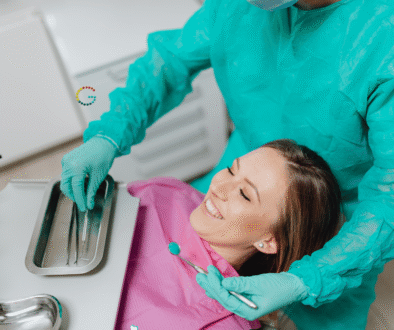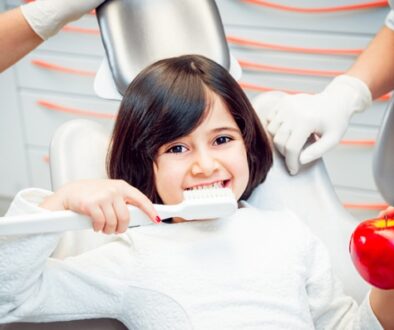Oral Cancer Screenings

Oral cancer is a disease resulting from abnormal cell growth in the mouth, lips, tongue or throat. If not diagnosed and treated quickly it can be life-threatening. Your dentist and dental hygienist are trained in looking for signs of oral cancer. They will start with taking your health history as well as a risk assessment to find out what factors you may have placing you at a higher risk for oral cancer. They will then proceed with an intraoral and extraoral cancer screening checking the head, neck, behind the ears, by the hairline, lymph nodes, in and around the mouth, under the tongue, back of the throat, the TMJ etc. What they look for? And what should you look for?
• Dark red/white spots or sore on the tongue, lips, cheeks or tissues or the mouth
• Lumps or sores that are thicker in texture, rough or area that bleed easily and does not fully heal
• Pain or numbness in the mouth or lips
• Abnormalities in your throat, or if it is difficult to chew speak or swallow also if you notice a taste
• Hoarseness in your voice that lasts a long time
• Enlarged lymph nodes or glands
• Persistent earaches
If any of these signs are present it is best to contact your dentist right away. They may perform a biopsy of the area to determine whether or not it is cancerous and refer you to your physician.
To help prevent oral cancer:
• See your dentist regularly for dental exams and oral cancer screenings
• Stop smoking or using chewing tobacco if you ever started
• Limit alcohol consumption.
• Stay out of the sun and use sunscreen lip balm.
• Eat a healthy diet with lots of fruits and vegetables.
• Lower your risk of HPV (human papillomavirus)
• Look in your mouth regularly to see if there are any changes in your mouth and let your dentist know right away.



